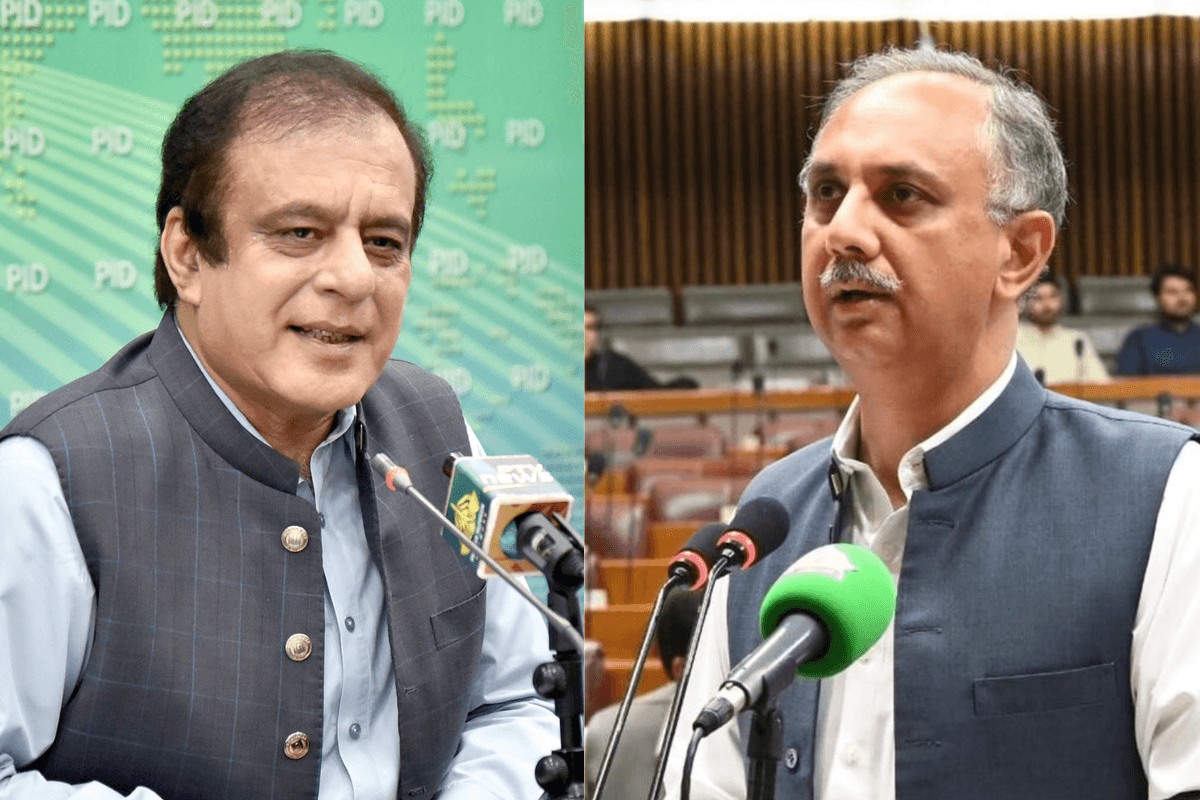Pakistan parliament left without opposition leaders as ECP disqualifies 9 lawmakers
Verdict by electoral body leaves National Assembly and Senate without opposition leaders after May 9 riot convictions
News Desk
The News Desk provides timely and factual coverage of national and international events, with an emphasis on accuracy and clarity.

Combo photo shows Senate Opposition Leader Shibli Faraz (L) and National Assembly Opposition Leader Omar Ayub (R).
Nukta
Pakistan’s top electoral body has disqualified nine opposition lawmakers, including the leaders of the opposition in both houses of Parliament, following convictions linked to the violent protests that erupted on May 9, 2023.
The sweeping decision by the Election Commission of Pakistan (ECP) has left the National Assembly and the Senate without formal opposition leadership, marking an unprecedented moment in the country’s parliamentary history.
The ECP's disqualification order, issued Tuesday, unseats Omar Ayub Khan from his National Assembly seat in Haripur (NA-18) and Shibli Faraz from his Senate position representing Khyber Pakhtunkhwa.
Ayub and Faraz were serving as the opposition leaders in the National Assembly and the Senate, respectively; their disqualification leaves both positions vacant amid an ongoing period of political uncertainty.
In addition to the two top opposition leaders, the ECP also disqualified seven other lawmakers affiliated with the Pakistan Tehreek-e-Insaf (PTI) party or its allies. These include Sahibzada Hamid Raza from NA-104 (Faisalabad), Zartaj Gul from NA-185 (Dera Ghazi Khan), Rai Hassan Nawaz from NA-143 (Sahiwal), and Rai Haider Ali Khan from NA-96 (Faisalabad).
At the provincial level, disqualifications were handed to Junaid Afzal Sahi from PP-98 (Faisalabad), Muhammad Ansar Iqbal from PP-73 (Sargodha), and Rai Murtaza Iqbal from PP-203 (Sahiwal).
All nine lawmakers were found guilty in cases related to the May 9 unrest by an anti-terrorism court in Faisalabad, which served as the legal basis for their disqualification under Pakistani electoral laws.
The ECP’s notification officially declares the nine seats - five in the National Assembly, three in the Punjab Assembly, and one in the Senate - as vacant, triggering the need for by-elections unless broader political developments intervene.
What happened on May 9, 2023?
The disqualifications stem from the violent nationwide protests that broke out on May 9, 2023, after former prime minister Imran Khan - founder of PTI - was arrested by paramilitary forces at the Islamabad High Court in a corruption case.
His sudden detention sparked chaos across major cities, with supporters clashing with police, setting public property ablaze, and even storming sensitive military installations, including the military headquarters in Rawalpindi and Lahore Corps Commander’s residence.
The state responded with a wide-ranging crackdown on the PTI, leading to mass arrests and a series of convictions against party members. While hundreds remain behind bars or face legal proceedings, the latest ECP ruling represents a sharp escalation in the institutional fallout from the May 9 events, effectively sidelining key opposition voices from Pakistan’s legislative process.







Comments
See what people are discussing